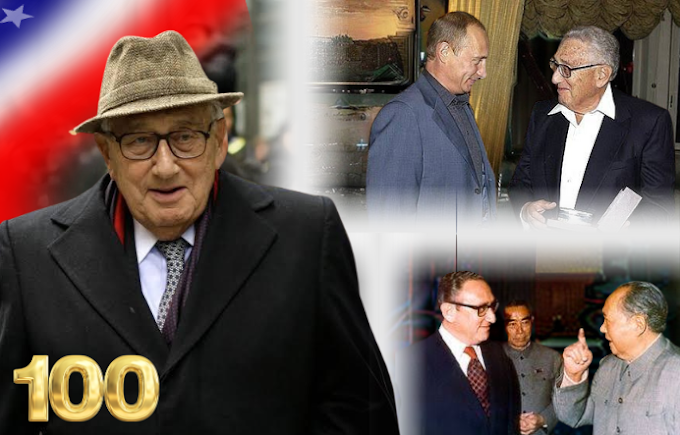
On November 11, 2023, Henry Kissinger, one of the leading figures in American diplomacy, died at the age of 100. Kissinger, a controversial but influential statesman, left an indelible mark on the world stage for more than six decades. His life embodied the complexities and contradictions of American foreign policy, a legacy that continues to spark controversy and intrigue.
Henry Kissinger's family background and his experiences in Germany played a significant role in shaping his worldview and his approach to foreign policy.
Family Background
Henry Kissinger was born Heinz Alfred Kissinger on May 27, 1923, in Fürth, Bavaria, Germany. His father, Louis Kissinger, was a schoolteacher, and his mother, Paula Stern, was a housewife. The Kissinger family was part of the Jewish community in Fürth, which numbered about 5,000 people.
Kissinger's father was a respected member of the community and served as president of the local Jewish teachers' association. He was also a devoted Zionist and instilled in his son a strong sense of Jewish identity. Kissinger's mother was a homemaker and raised her two sons, Heinz and Walter, in a loving and supportive environment.
Experiences in Germany
Kissinger's childhood was overshadowed by the rise of the Nazi Party in Germany. In 1938, when Kissinger was 15 years old, the family fled to the United States to escape the Nazi regime.
Kissinger's experiences in Germany had a profound impact on his views on politics and international relations. He witnessed firsthand the dangers of unchecked power and the importance of defending democracy and human rights. He also developed a deep understanding of the complexities of German society and the factors that led to the rise of Nazism.
Impact on Kissinger's Life
Kissinger's family background and his experiences in Germany are an important part of his life story. They helped to shape him into the complex and influential figure that is.
His academic and professional life

Kissinger graduated from Harvard University summa cum laude in 1948 and received a Ph.D. He received his doctorate in international relations in 1950. After receiving his doctorate, Kissinger taught at Harvard University and Columbia University. Kissinger was a famous and respected teacher at Harvard University. He published several influential books on international relations, including Nuclear Weapons and Foreign Policy (1957) and The Imperative of Choice: Prospects for American Foreign Policy (1961). This is what qualified him to work as an advisor to the American government on these and other issues .
He rose to prominence and was appointed National Security Advisor
Kissinger's Role in the Nixon Administration
Kissinger's Role in the Normalization of Relations with China
Kissinger appointed Secretary of State and Early Initiatives

- One of Kissinger's early initiatives was to negotiate an end to the Vietnam War, a conflict that deeply divided American society. In 1973, he helped broker the Paris Peace Accords, aimed at cessating hostilities and withdrawing American forces from Vietnam.
- Kissinger also played an important role in pursuing the policy of détente, the policy of easing tensions and reducing the risk of nuclear war between the United States and the Soviet Union. He engaged in extensive negotiations with Soviet leaders, including Leonid Brezhnev, to establish channels of communication and cooperation.
Kissinger's Involvement in Covert Operations
Henry Kissinger's tenure as National Security Advisor and Secretary of State was also marked by his involvement in covert operations, a controversial aspect of his legacy.
During the Vietnam War, Kissinger authorized covert operations in Laos and Cambodia, aimed at disrupting North Vietnamese supply lines and weakening their communist insurgency. These operations, conducted without congressional oversight, drew criticism for their potential to escalate the conflict and the lack of accountability for their consequences.
Kissinger also played a role in the overthrow of the democratically elected socialist government of Salvador Allende in Chile in 1973. The United States, under Kissinger's guidance, provided covert support to Chilean opposition groups, contributing to the coup that brought Augusto Pinochet to power. Pinochet's regime was responsible for widespread human rights abuses and political repression.
Kissinger's involvement in covert operations raises questions about the ethics and legality of using clandestine actions to achieve foreign policy objectives. His actions have been criticized for undermining democratic processes and contributing to political instability in various regions.
Despite the controversies surrounding his involvement in covert operations, Kissinger maintained that these actions were necessary to protect American interests and counter the spread of communism during the Cold War.
Kissinger's legacy and controversies
Kissinger's legacy as Secretary of State is complex and multifaceted. He is credited with important diplomatic achievements, including ending the Vietnam War, improving relations with the Soviet Union, and opening relations with China. However, his tenure was also marked by controversies, including his support for authoritarian regimes and his involvement in covert operations.
Kissinger remains a polarizing figure, with supporters praising his pragmatic approach to foreign policy and his ability to deal with complex international challenges. On the other hand, critics argue that his actions undermined human rights and contributed to political instability in various regions.
Despite the controversies surrounding his legacy, Henry Kissinger's tenure as Secretary of State under President Nixon represents an important chapter in American foreign policy. His diplomatic efforts have left a lasting impact on the global landscape, shaping international relations during a critical period of geopolitical transformation.






